4 Ways To Prevent Basement Flooding
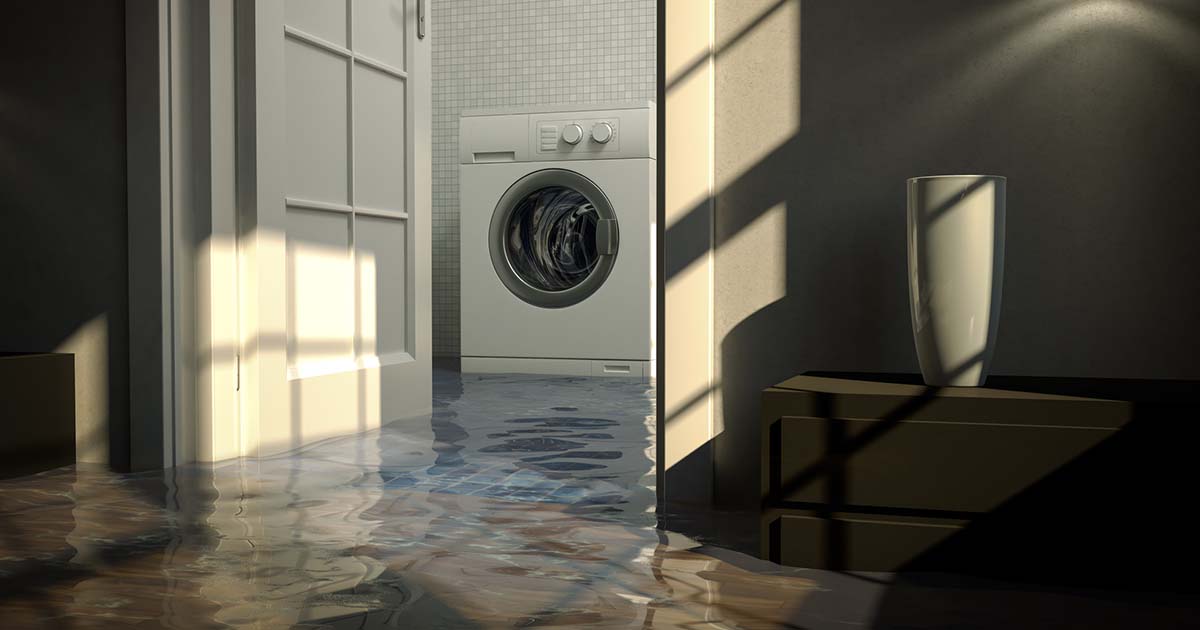
If you’ve ever experienced flooding in your basement after a heavy rainfall, you’ll know that there’s more than just water damage to deal with. Sewer backup claims typically involve sewage/waste water- a health hazard which can be very costly to clean up properly. One indication that it’s sewer backup is the smell – there is usually a very strong/foul odour associated with the water from sewer backup.
Sewer Backup Coverage: Increasingly Expensive and Difficult to Find
In the last few years, sewer backup claims have increased substantially in Toronto and throughout Ontario. A few years ago, most insurance companies included sewer backup coverage in their home insurance policies at no additional charge. But then, they slowly started charging money for it. Initially, the charges ranged from $10 – $70 per year. These charges were manageable by most of our policyholders. Now we are seeing insurance companies charging anywhere from $100 – $500 per year for sewer backup coverage.
If you’ve had the misfortune of going through a sewer backup claim, you may find that insurance companies are taking a very close look at your insurance history before they offer you a renewal. We are seeing the following potential outcomes of a sewer backup claim;
- Insurance companies will not renew you
- Insurance companies will renew you with a reduction in your coverage. For example, they may only offer you a maximum of $15,000 coverage in case of a future sewer backup claim.
- Insurance companies will insist that you install measures such as a sewer backup valve or sump pump that help minimize or prevent future sewer backup damage
- Increases in your premium
- Combinations of items 2, 3 and 4 above
- Sewer backup coverage unavailable in certain postal codes.
Prices for sewer backup coverage vary substantially from one insurance company, and it also depends on where you live (your postal code).
How To Protect Your Property From Sewer Backup
Here are 4 ways to prevent basement floods due to sewer backups:
One-way drain plug protection
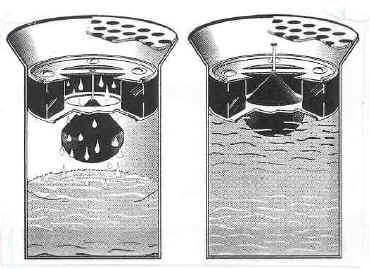
- Floor Drain Plug: One-way drain plugs can be installed below floor drain grates that prevent water from backing up due to overloaded sewers. Once sewer condition return to normal, a special float is deactivated, and water can return through the opening. One-way plugs are relatively inexpensive, and often are the simplest preventative solution. A regular commercial plug can be used to completely seal off a drain; however, will prevent proper drainage in the case of a burst pipe or overflowing laundry machine. When using a one-way drain plug, be sure that the float mechanism is always free from any debris that could prevent it’s proper function.
- Standpipe: A standpipe is basically an ordinary pipe stuck in the floor drain, surrounded by a watertight rubber seal. Any water that rises out of the drain goes into the pipe, not out on the floor, unless the backup is so deep that it goes over the top of the pipe, typically 3 feet or so. When flood conditions are no longer a threat, the standpipe can be removed, allowing any water spillage to drain.
Standpipe protection
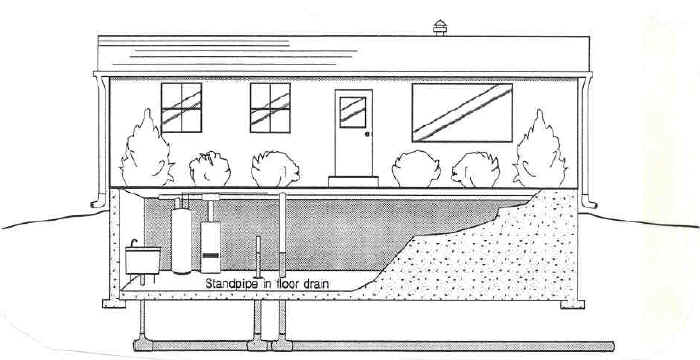
- Overhead Sewer: An overhead sewer is the most foolproof protection against basement flooding, but also the most costly. Any overflow is collected in a space below floor level known as a sump, where water is pumped into overhead pipes, where it can then drain into the building’s main sewage line. Installing an overhead sewer requires a licensed plumber and a building permit.
Overhead sewer protection
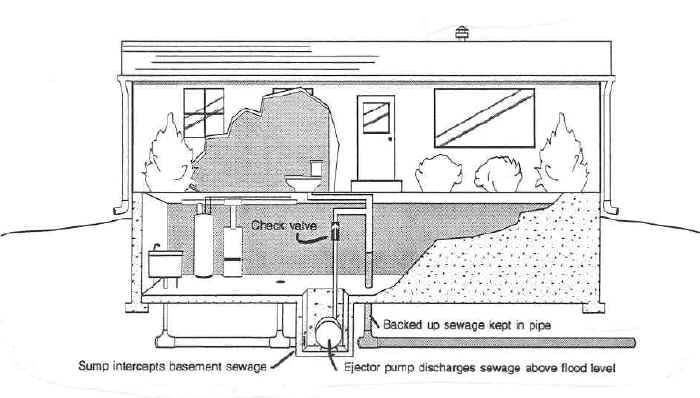
4. Backwater Valve: A backwater valve, or  backflow prevention valve can be installed in the basement at the exit point from the building, or underground pipe that connects to the sewer line known as the  sewer lateral, often in the closest manhole. Backwater valves also require licensed plumber and construction permit, and is a higher priced solution, however can easily save you thousands of dollars in then event of a sewer backup.
Backwater valve protection
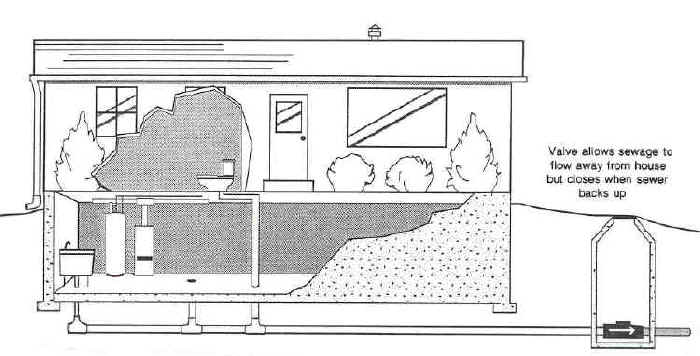
These sewer backup protection solutions are some of the most commonly used to help prevent a basements from flooding. Be sure to consult with an experienced plumber or contractor to best assess your needs.
If you own a single-family residential, duplex, or triplex in Toronto built before 2009, you may be eligible for the Basement Flooding Protection Subsidy Program. If you need sewer backup coverage, or any other Toronto insurance solution, get in touch with us today to speak with one of our friendly, experienced brokers.



